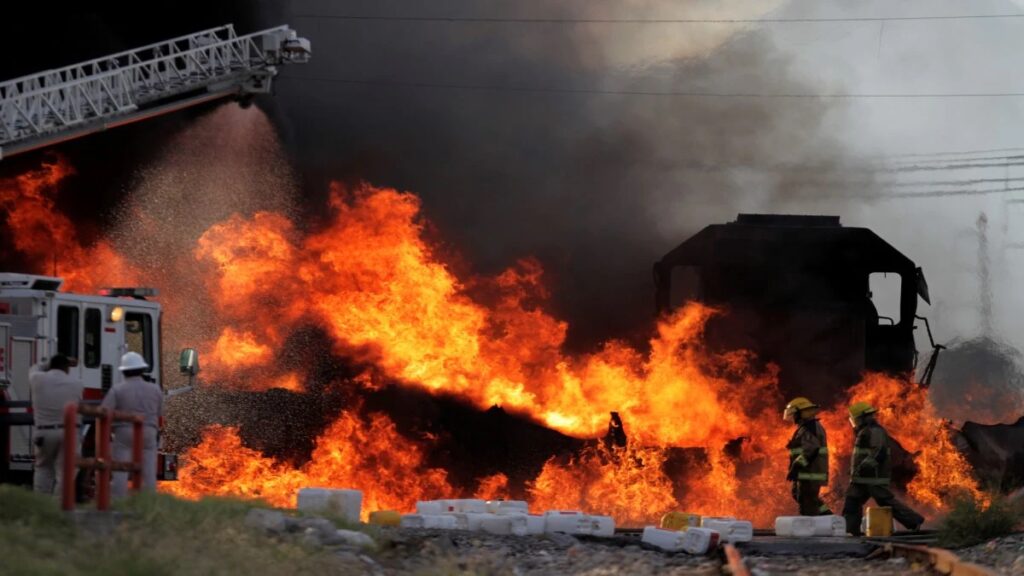Residents were collecting fuel from an overturned tanker when a fire caused a deadly blast in Rivers State.
A fuel tanker explosion in Nigeria has killed almost 100 people, according to police reports. The incident occurred in the southern state of Rivers, near a village called Ibaa. Witnesses stated that people had gathered around the tanker to collect fuel after it overturned. The explosion happened when the tanker caught fire, engulfing those nearby in flames. This tragic event highlights the ongoing risks surrounding the transportation of fuel in Nigeria.
Nigeria has a history of deadly fuel-related accidents, often caused by people attempting to siphon fuel from broken-down or overturned tankers. Many individuals in poverty-stricken areas take extreme risks to collect fuel for personal use or resale. The Rivers state explosion is one of the deadliest incidents of this kind in recent years. In 2019, a similar accident claimed over 50 lives when a fuel tanker exploded in Benue State. These events continue to be a serious safety issue in the country.

Authorities believe that a spark or nearby fire might have triggered the explosion. Fuel tankers carry highly flammable gasoline, and any exposure to heat or sparks can cause a massive fire. In this case, the fire quickly spread, trapping dozens of people who were attempting to collect fuel. Emergency services arrived shortly after the explosion, but they could not save many of the victims. Several others suffered severe burns and were rushed to nearby hospitals.
Nigerian Government Under the Pressure to Act
The Nigerian government and safety experts have repeatedly warned the public about the dangers of siphoning fuel from tankers. Despite these warnings, incidents continue to happen due to the widespread poverty and lack of access to affordable fuel. Many rural Nigerians rely on illegal or dangerous methods to obtain fuel, putting their lives at risk. While officials have tried to enforce stricter safety regulations, these efforts have not been enough to prevent accidents like this one.
The aftermath of the explosion has sparked outrage across the country. Local authorities and police have opened an investigation into the cause of the accident. Meanwhile, families of the victims are calling for accountability and better safety measures to prevent future disasters. In many cases, fuel tanker accidents occur due to poor road conditions, lack of proper maintenance, and overloaded vehicles. These factors contribute to the frequency of such accidents, especially in rural and underdeveloped areas.
The Nigerian government faces growing pressure to address the issue of fuel transportation safety. Critics argue that more needs to be done to enforce regulations and improve infrastructure. As the investigation continues, many Nigerians are left grieving the loss of their loved ones in this preventable tragedy. The Rivers state fuel tanker explosion serves as a grim reminder of the dangers faced by those living in poverty and the urgent need for better safety measures in the fuel industry.




